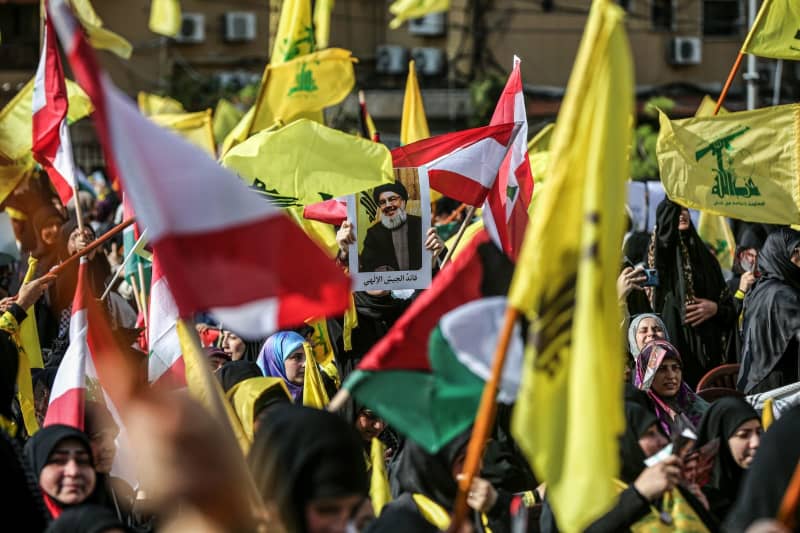On Monday, the future of Hezbollah was a focal point as Lebanese Prime Minister Najib Mikati noted the absence of communication from the militia group for several weeks. This development comes against the backdrop of escalating Israeli military operations aimed at destabilizing Hezbollah, much like its recent efforts to dismantle Hamas in the Gaza Strip following the latter’s significant attacks against Israel last October. Observers are scrutinizing Hezbollah’s condition after Israel launched airstrikes targeting the financial apparatus of the group, with the Israeli Foreign Minister proclaiming that the military had left “Beirut in flames.” This offensive reportedly hit over 15 of Hezbollah’s financial assets, prompting questions about the group’s operational status and its ability to sustain its activities in the face of such aggressive Israeli actions.
Lebanon’s Prime Minister disclosed a notable lack of communication with Hezbollah since mid-September, raising concerns about the militia’s internal dynamics and decision-making amidst the ongoing hostilities. Despite Hezbollah maintaining a considerable political presence in Lebanon, with the inclusion of two Cabinet ministers and numerous parliamentary representatives, Mikati’s remarks suggest that Hezbollah leaders may be exercising caution and limiting their interactions due to the heightened military threat from Israel. The change in communication frequency indicates a strategic shift on Hezbollah’s part in view of the increased Israeli military incursions, sparking uncertainty regarding the group’s cohesion and leadership amidst the crisis.
The Israeli strikes extended into southern suburbs of Beirut, with reported airstrikes causing casualties and destruction. The Lebanese Ministry of Health confirmed fatalities in these attacks, and the Israeli military has stated that their operations strive to incapacitate Hezbollah’s financial foundation. Throughout these hostilities, Hezbollah has managed to respond with rocket fire targeting northern Israel—approximately 40 missiles were launched in one instance, although many were intercepted. This retaliatory capacity underscores that, despite the severe assaults from Israel, Hezbollah retains functional military capabilities.
Amid these developments, the secretary-general of the Arab League, Ahmed Abul Gheit, addressed the resilience of Hezbollah’s ideology during discussions with Lebanese officials. He underscored the notion that while military incursions may inflict damage, the underlying ideas and motivations of groups like Hezbollah cannot be eradicated. He called for an immediate ceasefire, emphasizing the urgent need for diplomacy in the face of escalating violence and regional instability. The Arab League’s position highlights the complex interplay of ideology and military power in the region and suggests that continued conflict could lead to broader ramifications beyond immediate territorial disputes.
In related incidents, the Israeli military expressed regret for the death of three Lebanese army personnel following an airstrike that mistakenly targeted an area where Hezbollah was believed to operate. The Israeli Defense Forces (IDF) maintained that they did not aim to strike Lebanese military assets and were unaware of the presence of the army’s personnel. This revelation adds to the tensions between Israel and Lebanon, with the Lebanese military having largely aimed to distance itself from the conflicts between Israeli forces and Hezbollah, highlighting the challenges faced by the Lebanese government in maintaining order amidst burgeoning military engagements.
The broader regional landscape remains fractious, with various Iranian-backed militias in Iraq and Yemen also threatening Israel, presenting an intricate web of conflict. On the diplomatic front, the ongoing violence has drawn criticism towards the UN Security Council for failing to intervene meaningfully to address the situation. As regional powers engage in military operations and political maneuvering, the future dynamics of Hezbollah, Israel, and Lebanon will likely be shaped by ongoing military confrontations, regional strategies, and the responses of international bodies. The escalation of violence, paired with a precarious political environment, suggests that Lebanon’s stability will continue to be challenged as local powers and foreign influences intersect in the pursuit of their respective agendas.

